How to prepare—and stay safe—in a winter storm
A winter wonderland can be dangerous. Here’s how to keep yourself and your family safe when a blizzard strikes.
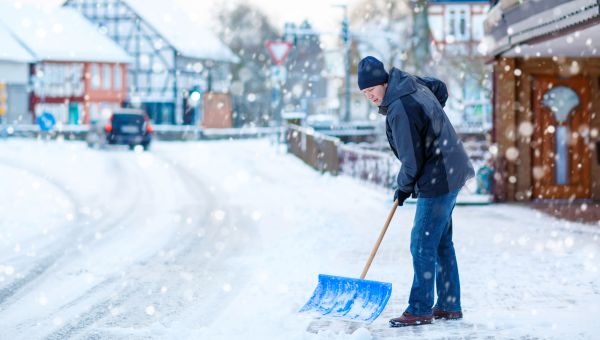
Ah, snow. It’s so quiet, peaceful and beautiful. Everyone loves snow, unless there’s a nor’easter blowing through, dropping a ton of it. A blizzard can be not just an inconvenience, but also a downright danger. Slippery roads, power outages and overdoing it when digging out can lead to accidents, injuries and even heart attacks. Follow these tips to stay safe before, during and after a storm.
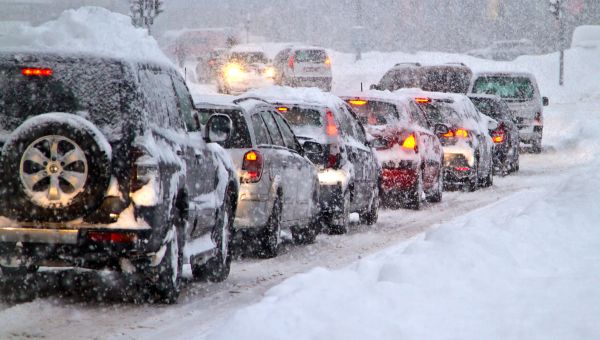
Understand the Warnings
When the weatherman’s predicting some ugly weather, know what you’re getting into. Sometimes it seems like the news is speaking in code. Here’s a translation for common weather warnings:
- Winter weather advisory: The weather is going to make life difficult, and may be hazardous. Plan for a messy commute, leave for the office early and use caution.
- Winter storm watch: Snow, sleet and ice are possible in the next 36 to 48 hours. Review our Winter Storm Checklist.
- Winter storm warning: Heavy snow and frigid temperatures are expected in the next 24 hours. Get inside and stay there.

Make a Plan
You know the snow’s coming and you know when, so there’s no excuse to be caught unprepared. Cover these basics:
- Buy a three-day supply of food and water, know where your flashlights are, stock extra batteries and make sure you have at least a week’s worth of any medications you and your family need. Get a hand-crank NOAA radio in case the power goes out.
- Top off your car’s gas tank and fluid levels. Keep snacks, water, a warm blanket and a portable shovel in your car.
- Store snow shovels, sand and rock salt in an easily-accessible place. It’ll be tough to reach a backyard shed, especially if it’s buried in snow.
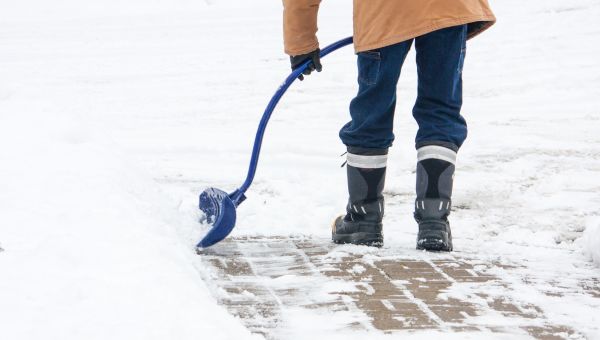
Shovel with Caution
Shoveling can be a pain in the back – and sometimes more if you’re not careful. Use these tips to clear snow safely:
- Dress in layers. Shoveling is like exercise, and you can overheat no matter the temperature.
- Take it slow. Going too hard too fast can lead to pulled muscles.
- Don’t put your back into it. Your legs are the strongest muscles in your body, so use them. Focus on pushing snow to the side as much as possible instead of lifting and throwing it.
- Take it easy. Overexertion can lead to a heart attack. If you start to feel weak or dizzy, or if you start to get chest pains, stop immediately, go inside and get help.
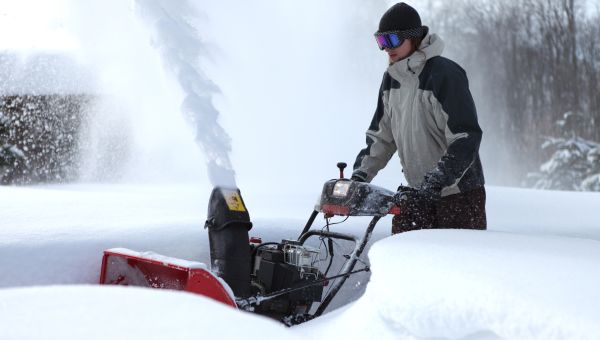
Snowblower Safety
Modern conveniences are amazing, except when they’re not. Sure, a snowblower can clear your driveway in a fraction of the time it takes to shovel, but it can also take off your hand. Treat snowblowers with respect and follow these tips.
- Keep your hands away from moving parts.
- If you have to clear the snowblower out or refuel it, turn it off. Don't use your hands to unclog snow or debris. Use a stick or other solid object instead. Even if the blower is off, the blades can recoil and injure you.
- Start up and shut down your snowblower outside, never in the garage. The carbon monoxide exhaust from the engine can kill.
Be prepared: Cover all the bases with our Winter Storm Checklist.
More On


video

article
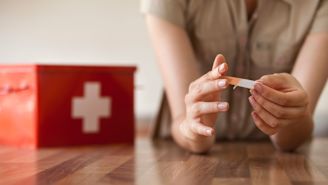
slideshow


video


video
